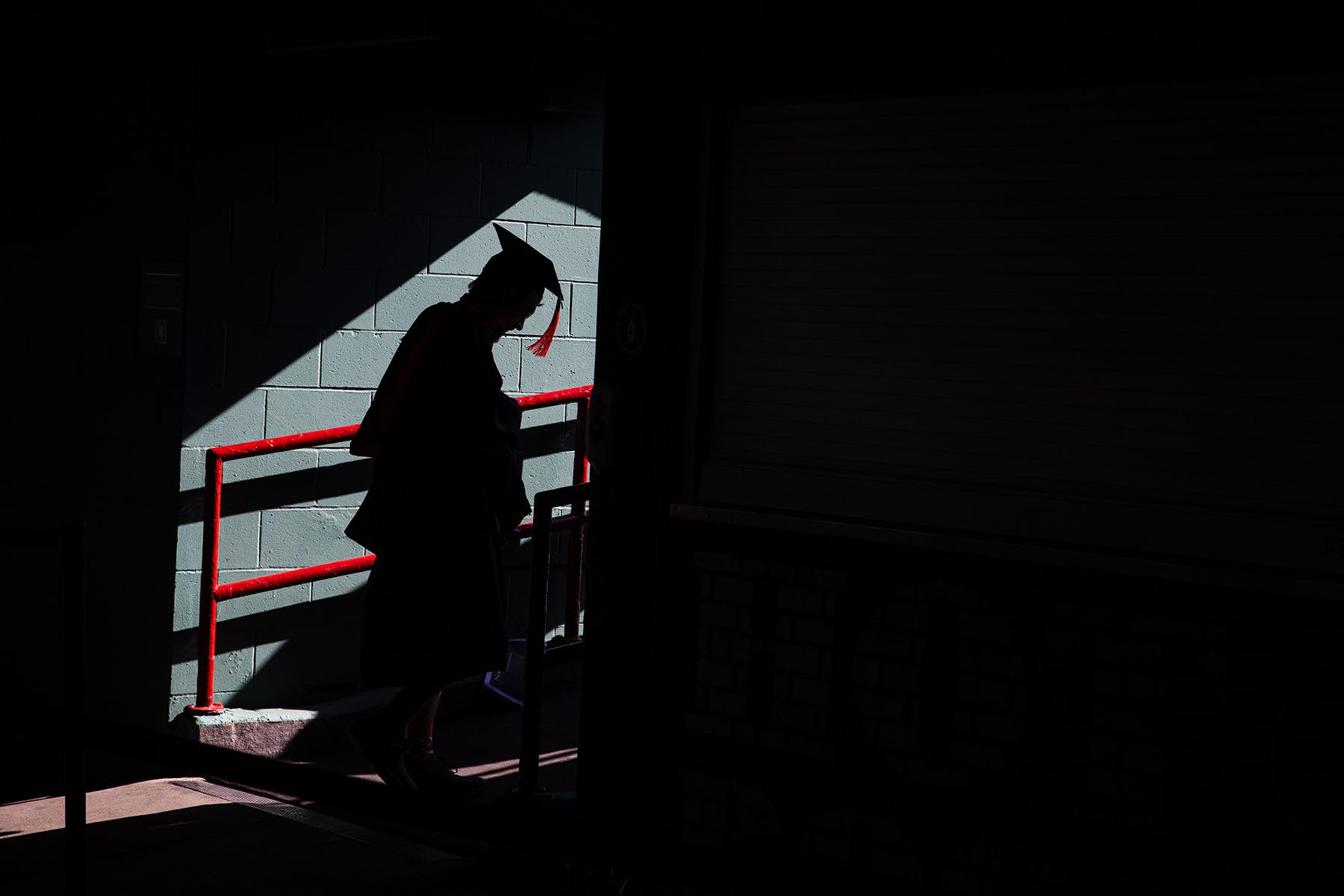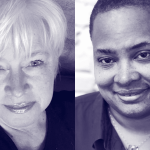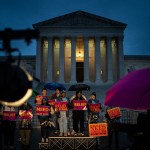Your trusted source for contextualizing the news. Sign up for our daily newsletter.
More than 40 million Americans — disproportionately women, people of color and working-class borrowers — stand to have some or all of their school debt canceled if President Joe Biden’s student loan relief plan survives legal challenges now before the Supreme Court. For three and a half hours on Tuesday, the high court heard oral arguments for a pair of lawsuits opposing the Biden administration’s plan to forgive up to $20,000 in student debt for borrowers with annual incomes under $125,000.
One point of contention is whether forgiveness is fair to people without student debt, with some justices echoing the popular Republican talking point that borrowers belong to a privileged slice of society thanks to their college degrees. Attorneys — and debt relief advocates — have challenged that notion.
While arguing that the Biden administration had the right to cancel student debt, U.S. Solicitor General Elizabeth Prelogar discussed the challenges borrowers face.
“Over the past three years, millions of Americans have struggled to pay rent, utilities, food, and many have been unable to pay their debts,” Prelogar said. “Loan forgiveness is a paradigmatic form of debt relief, and the [education] secretary acted within the heartland of his authority and in line with the central purpose of the HEROES Act in providing that relief here.”
The Higher Education Relief Opportunities for Students (HEROES) Act of 2003 allows the education secretary to “waive or modify any statutory or regulatory provision” during national emergencies. Prelogar said that the secretary acted in accordance with the statute when he initiated the student debt relief program because the COVID-19 pandemic constituted a crisis.
During the oral arguments, Prelogar “did an extraordinary job of myth-busting” about student loan borrowers, said Mike Pierce, executive director of Student Borrower Protection Center, a nonprofit focused on reducing student debt. Most borrowers aren’t affluent and many never completed their higher education. Borrowers say that loan debt has prevented them buying homes, starting families or simply making ends meet.
“We know that 40 percent of all people that have student loans didn’t graduate from college,” Pierce said. “So, this is very much a progressive policy because it drives debt relief into communities that wouldn’t otherwise be reached by other kinds of programs. I think it’s also important to note that 26 million people filled out the government’s application before this Texas judge told them to take it down. And of those 26 million people, the vast majority live in communities where average incomes are lower middle class. That’s the typical borrower in America right now.”
Chief Justice John Roberts, however, invoked the “major questions doctrine” to question whether the Biden administration had the right to broadly forgive federal student debt. The doctrine prohibits federal agencies from making large-scale economic and political decisions without the go-ahead from Congress. He also stood out as one of the justices pressing the fairness of debt forgiveness and implying that borrowers have more advantages than, say, entrepreneurs who didn’t have the chance to attend college.
“Nobody’s telling the person who is trying to set up [a] lawn service business that he doesn’t have to pay his loan,” Roberts said. “He still does, even though his tax dollars are going to support the forgiveness of the loan for the college graduate, who’s now going to make a lot more than him over the course of his lifetime.”
Fenaba Addo, associate professor of public policy at the University of North Carolina at Chapel Hill, told The 19th that the income caps included in the debt relief program ensure that elite Americans will not be the primary beneficiaries. According to the Biden administration, 90 percent of relief dollars will assist people who earn less than $75,000 annually.
While research indicates that people who attend college typically have higher lifetime earnings than those who did not, this is not always the case, especially in the example that Roberts provided. An entrepreneur in a male-dominated field such as lawn service will not necessarily earn less than women and people of color with a college education. Women who receive a higher education often become “pink-collar workers,” employed in fields such as teaching, social work and health care that traditionally have not paid as much as industries overrun by men — with or without college degrees. Moreover, many college-educated people of color lack generational wealth and experience a persistent wage gap that limits their ability to pay off student debt, depressing the wages they do earn.
Addo’s research on borrowers who have accumulated the most student debt and struggle with repayment reveal “pretty consistently across datasets that Black borrowers are struggling the most and have the most debt, specifically Black women,” she said.
Such borrowers include women like Ifrah Abdalla who told The 19th that she has roughly $40,000 in student debt. Of Somali and Oromo heritage, Abdalla arrived in Minnesota as a child refugee from Ethiopia. In 2019, she earned a sociology degree from the University of Minnesota, becoming the first person in her family to graduate from college. Her journey to a bachelor’s degree was not easy: Abdalla had to balance her higher education with raising a small child.
“As a single parent, it was so hard to balance being a full-time student and then trying to work full time,” she said. “So what I would do is I used [student loans] to help me with rent. We had to pay to park on the college campus. Even just basic tools that you needed to survive college, like your notebooks or just having a laptop. So my loans added up a lot faster than other students’ loans. …The American Dream has been sold to us since we were all children that we have to go to college to be successful. It’s just so expensive.”
Her student loans also helped her put her daughter in daycare while she attended classes. With the help of the Jeremiah Program, a national program based in Minneapolis that works to disrupt the cycle of poverty by helping single mothers achieve economic mobility, Abdalla was able to earn a college education.
Ashley Mages also credits the Jeremiah Program with helping her to graduate from college. She gave birth to a daughter in 2009 after becoming pregnant her senior year of high school, and the Jeremiah Program gave her access to housing and discounted onsite daycare. In 2014, she graduated from the University of Minnesota with a mechanical engineering degree. Although she worked three part-time jobs that helped her pay for daycare and living expenses and received a Pell Grant to help with college costs, Mages left college with $20,000 of student debt. Now working as a senior controls engineer, she managed to pay off her debt just a couple of years after college graduation by living very frugally — eating ramen, sharing housing and driving an old car that constantly broke down. Still, she doesn’t resent the Biden administration for trying to forgive the debt of lower- and middle-class people who have yet to pay off their loans.
“If I still had the loans, I would [potentially] benefit and that is completely fine because I’m blessed and fortunate and privileged to be in a situation where that’s not a concern at this point,” she said. “When I was in that situation, it would have meant the world to me to have that burden released and to be able to prioritize other goals and other things that I needed.”
Addo said that student debt forgiveness and other government policies should not involve pitting groups of Americans against each other. She also challenged the idea, as the stories of Abdalla and Mages do, that only privileged people borrow money to attend college.
“Often, the narrative that people like to put out there is that it is elite people who went to elite colleges who have exorbitant amounts of debt,” she said. “But [student debt] is accumulated at all kinds of institutions.”
The Biden administration, for example, has forgiven the debts of people who attended predatory for-profit colleges. These institutions have primarily targeted low-income students and students of color who left them, often without a degree, to discover that the coursework they completed was not transferable to traditional academic institutions.
Since announcing the debt relief plan in August, the Biden administration has faced a series of lawsuits that stopped the program from moving forward after millions of borrowers applied for forgiveness. Some of those cases are stuck in lower courts and others have been thrown out, but the two cases now before the Supreme Court question whether the Biden administration had the power to broadly forgive student debt. While state attorneys representing Republican-led Arkansas, Iowa, Kansas, Missouri, Nebraska and South Carolina brought one lawsuit, the other was brought by two Texans who did not qualify for all the debt relief that was offered.
The oral arguments focused heavily on whether the Biden administration could erase $400 billion in student debt without congressional approval. While conservatives on the Supreme Court suggested that the president did not have the executive authority to do so, legal experts and debt cancellation advocates say that the Biden administration may win the case on the grounds that the plaintiffs lack legal standing to sue. Article III of the Constitution indicates that individuals suing in federal court must demonstrate that a government policy has harmed them firsthand. Legal scholars on both sides of the partisan aisle contend that the federal forgiveness program has not injured any of the plaintiffs directly, a concern that emerged during oral arguments.
“There were members of the conservative [Supreme Court] majority that voiced some skepticism about whether the president acted within the bounds of the law, but the lawyers that are watching this case focused really squarely on there not seeming like there is a majority on this court to find that these challenges have standing in the first place,” Pierce said. “And what that means is that you could have five or six justices take issue with whether or not this action was lawful, but nonetheless dismiss both of these cases and allow the president to deliver debt relief to everybody.”
The Supreme Court is expected to announce its decision on the student debt forgiveness program in the summer.






